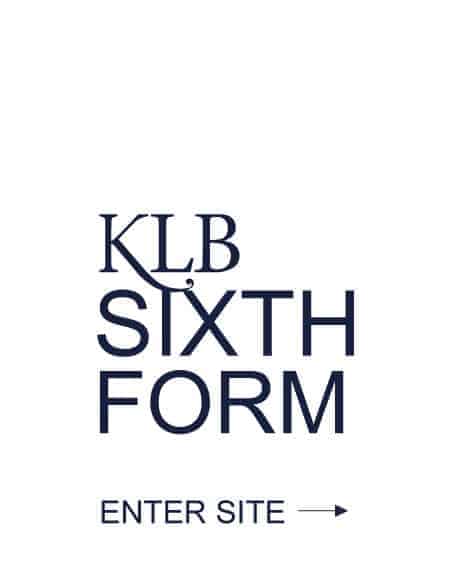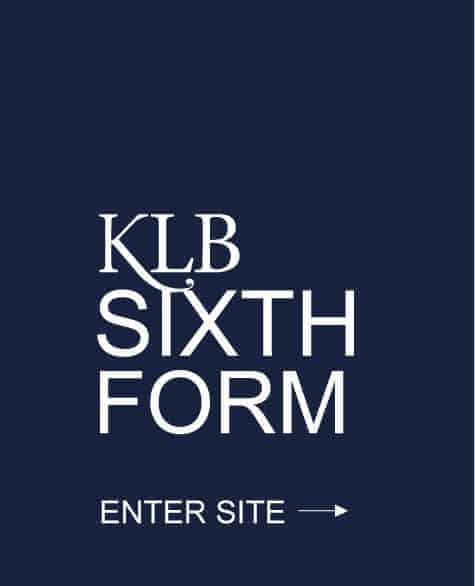Key Stage 3: Vision/Intent
Studying Religious Education at KLB is to explore what different people believe and what difference this makes to how they live, so that pupils can gain the knowledge, understanding and skills needed to handle questions raised by religion, belief, and worldviews reflecting on their own ideas and ways of living. The RE curriculum builds and develop upon the knowledge gained from KS2, and prepares students for the challenge and rigour of KS4 and beyond. The three types of knowledge that the curriculum aims to develop are; Substantive knowledge (the key beliefs and facts about religions), Ways of knowing (how we go about studying aspect of RE) and personal knowledge (how this new learning impacts upon me as an individual). The RE curriculum at KS3 focusses on understanding aspects of Christianity, Buddhism, Islam and Sikhi as well as Humanism and other world views.
Year 7: Vision/Intent
We aim to encourage students to be reflective and thoughtful individuals who will know about and understand a range of religions and worldviews. The Year 7 curriculum focusses on introducing key aspects of religion (Unit 1: The Island), making links with the three types of knowledge gained at KS2 and developing them further. Pupils will study the ‘Big story’ in the Bible and make connections within the Old Testament and the ministry and life of Jesus (Unit 2: What is the Big story in the Bible / What was so radical about Jesus? ) and exploring the nature of the sacred (Unit 3: What is the values of sacred places and journeys?). Pupils will learn how to study these aspects of religion through the use of various disciplinary lenses as well as developing their own personal reflections on the issues and debates they encounter.
Year 8: Vision/Intent
We aim to develop students to express ideas and insights, significance and impact of religions and worldviews in both contemporary society and in the past. The Year 8 curriculum focusses on continuing to develop student understanding of Christianity, Islam, Buddhism and Sikhism and elements of Humanism by linking to previous knowledge gained in Year 7. Pupils will continue to study aspects of religion beliefs and world views via the use of multidisciplinary lenses as well as developing their own personal knowledge to issues and debates they encounter.
Units covered include:
Unit 4: The Buddha: how and why do his experiences and teachings have meaning for people today?
Unit 5: How are Sikh teachings on equality and service put into practice today?
Unit 6: Is death the end?
Unit 7: What difference does it make to believe in prayer?
Unit 8: How can people express the spiritual through the arts?
Pupils will be able to make links between the key ideas found within religious traditions, and apply them and respond to them
Year 9: Vision/Intent
We aim to further develop and encourage students to gain and deploy the skills needed to engage seriously with religions and world views, and prepare them for the demands of KS4.
The Year 9 curriculum focusses on further developing students understanding of world religions studied in Year 7 and Year 8 and apply concepts to current and historical ethical/moral issues. Pupils will be able to make links between knowledge gained in Y7 and Y8 and continue to develop their understanding of the various disciplines utilised in RE as well as refining and developing their own personal knowledge in this area.
Units covered include:
Unit 9: What does it mean to be Muslim?
Unit 10: Is religion a power for peace or a cause of conflict in the world today?
Unit 11: What difference can fighting injustice make?
Unit 12: What can we learn from the Holocaust?
Extra Curricular offerings include:
Year 7 – Interviewing a Baptist Minister (within lessons) for unit 2 Term 4
Field visit to St Mary’s church in Kingswood for unit 3 term 6
Year 8 – Interviewing a Baptist Minister (within lessons) for unit 6 term 3
Diversity enrichment drop down day – Sikhi Workshops (to complement all units with elements if Sikhi)
Year 9 – Interviewing a Baptist Minister (within lessons) unit 10
Field trip to a Mosque planned for term 6, TBC
Key Stage 4 – Religious Studies
The Religious Studies GCSE will encourage students to develop knowledge, understanding and skills to engage in debate and discussion about life in a modern pluralistic society. This includes an understanding of non-religious beliefs such as humanism and atheism. Students will explore personal values and beliefs, with an emphasis on critical analysis and the ability to construct balanced and informed arguments within the context of religious, philosophical and ethical awareness.
Course Content
The course enables students to think critically, engage with contemporary religious, moral and ethical issues and prepares them for some of the challenges they may face when they leave school and go into our multi-ethnic, multi-faith society. Students explore their own views, the views of their peers and some of the views and teachings found in Christianity and other religions as well as non-religious views.
Skills developed in Religious Studies
Students will have the opportunity to:
- Absorb and retain complex information and identify key issues
- Select relevant information and think logically
- Express ideas clearly through essay writing and discussion
- Tackle aspects of new languages
- Use imagination and creativity
- Develop a critical approach to contemporary issues
- Develop a disciplined approach to problem solving
- Develop investigative, analytical and critical evaluation skills
- Understand, and take a sensitive approach to, different cultures and beliefs
- Show a real curiosity in people and world cultures
Methods of learning most often used in Religious Studies
Discussing; presenting; reading; researching; planning, implementing, and evaluating campaign activities; analysing media; constructing logical chains of reasoning; engaging with contemporary and historical issues.
The department will also offera range of educational visits.
How the course is assessed
| Title | Type | Time | Date | % of marks towards the grade |
| Buddhism (Beliefs and Practices) and Islam (Beliefs and Practices) | Written Exam 1 | 1 hour 45 mins | Summer 2022 | 50 |
| Themes (Philosophy and ethical issues from a Christian perspective | Written Exam 2 | 1 hour 45 mins | Summer 2022 | 50 |
What can you do next with a qualification in Religious Studies?
The course facilitates the development of many sought after and transferable skills that employers and further education providers look for. Areas of employment that benefit from the skills developed in RE include: Teaching, Charity Officer, Counselling, Civil Service. A GCSE in Religious Studies will support further study at A Level and beyond.
Extra Curricular offerings include:
Previously we have been able to offer specific field trips to Cardiff Buddhist centre and a Mosque in Bute Town (not offered this year as there are Y10 classes studying Religious Studies, but it would be offered next year should we get a class)
Extra Curricular offerings include:
Previously we have been able to offer specific field trips to Cardiff Buddhist centre and a Mosque in Bute Town (not offered this year as there are Y10 classes studying Religious Studies, but it would be offered next year should we get a class)
The department also offers and runs the following:
- KS3 Philosophy film club on Monday lunch time
- Chess club on Tuesday and Thursday lunch time
- Warhammer club on Wednesday lunch and Wednesday afterschool


